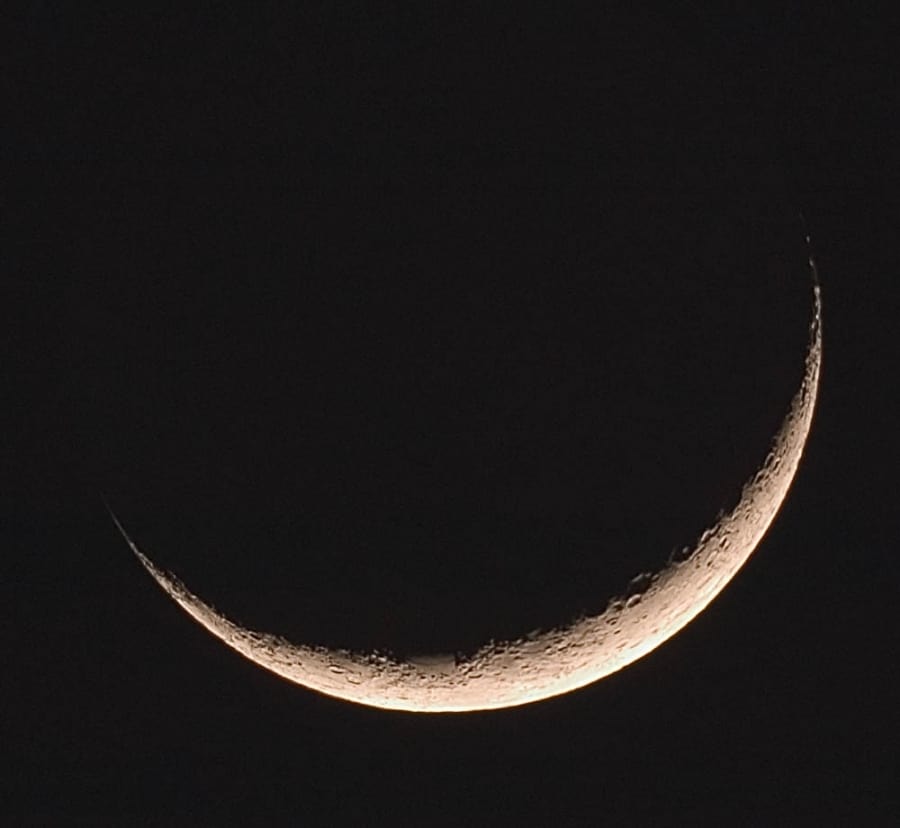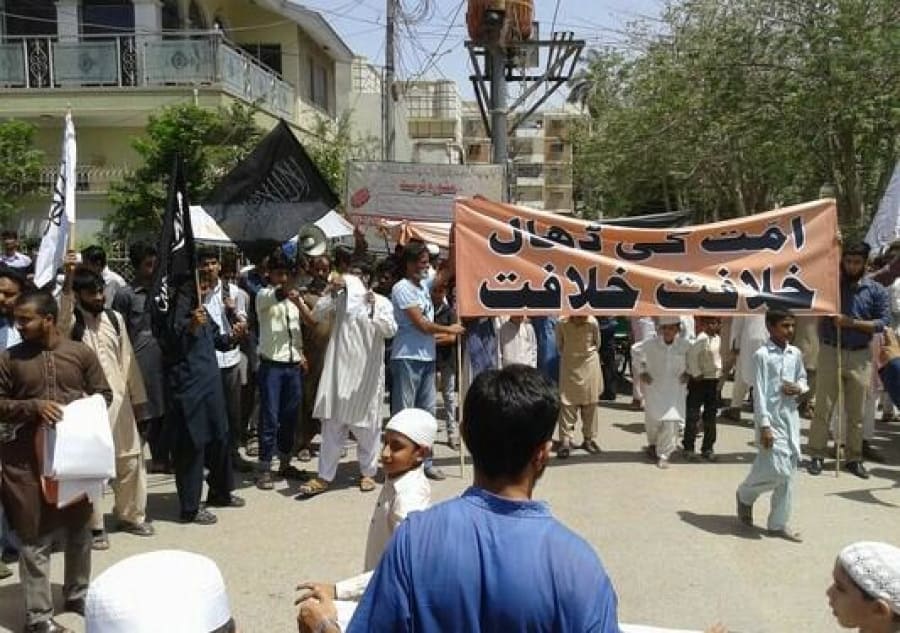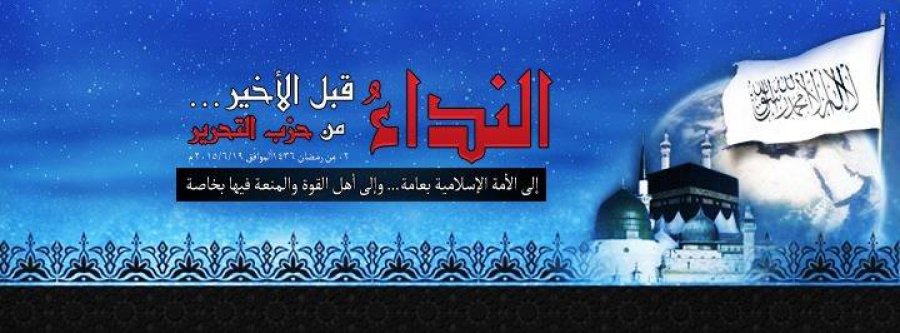The blessed month of Ramadan will enter upon the Muslim Ummah all over the world in a few days. It is month of great blessing, mercy, forgiveness and salvation from the Fire. Praise be to Allah who favoured us with this virtuous month.
We are certain that the Muslim Ummah yearns for that day in which she is united in beginning Ramadan and in celebrating Eid, as a practical manifestation of Islamic unity. However, for many years the Muslims have been deprived of this due to the illegitimate rulers who rule over her, who actively maintain disunity between the Muslims and who make the crescent moon follow the political borders imposed on the Muslims by colonialist powers. The scholars linked to these regimes also partake in this crime by either allowing it or remaining silent about it.
O Muslims: In the time of the Messenger of Allah (saw) and the Khulafa al-Rashideen the Muslims would begin and end fasting on the same day, in compliance with the command of Allah (swt) and the example of His Messenger (saw). When fasting the month of Ramadan was made obligatory by the saying of Allah, “So he amongst you who witnesses the month, he must fast it” (al-Baqarah: 185), the Messenger of Allah (saw) clarified how this was to be practically implemented from all aspects, including the issue of the beginning of the month.
He (saw) said, “Fast upon its (the crescent moon) sighting and break fast upon its sighting” (al-Bukhari). In this hadith and others like it he (saw) commanded Muslims collectively to begin fasting upon the sighting of the crescent moon. This is because the words of these ahadith came general and unspecified. The pronoun of plurality in the command to “fast” and “break fast” indicates upon the generality of the Muslims, not any specific group of them to the exclusion of others. Similarly, the expression “its sighting” is a noun of genus annexed to a pronoun and thus benefits generality. The implication is that the ahadith address all Muslims collectively in commanding them to begin fasting when the crescent of Ramadan is sighted and break fast and celebrate Eid when the crescent of Shawwal is sighted.
The Messenger of Allah (saw) also clarified that it is not a requirement that every Muslim see the crescent for himself. Rather, the sighting of one Muslim suffices for all Muslims. Ibn Abbas (ra) reported, “A bedouin came to the Prophet (saw) and said, ‘I saw the crescent (of Ramadan)’. The Prophet (saw) said,‘Do you bear witness that none is worthy of worship save Allah?’ He said, ‘Yes’. The Prophet (saw) said, ‘Do you bear witness that Muhammad is the Messenger of Allah?’ He said, ‘Yes’. So the Prophet (saw) said, ‘O Bilal, announce to the people that they must fast tomorrow.’” (al-Hakim)
He (saw) also clarified that the sighting of the crescent by Muslims in any one land necessitates the Muslims in other lands to go by it as well. In respect of sighting the crescent no Muslim has preference over another and no land has preference over another. It was reported from a group of the Ansar (ra),“The crescent of Shawwal was hidden from us (by clouds) so we arose the next morning fasting. Then a caravan from outside Madinah arrived towards the end of the day and the people in it witnessed to the Prophet (saw) that they had seen the crescent yesterday, so he (saw) commanded us to break our fast and to gather for Eid the following morning.” (Ahmad) Thus the Messenger of Allah (saw) sufficed with the witness of these Muslims who came to Madinah from another city without asking them about where they came from, how far it was or the like, and he commanded the people of Madinah to go by their sighting, even though this meant breaking a fast kept for most of the day and praying Eid a day late.
Thus the Messenger of Allah (saw) clarified this matter for us. The fast of Ramadan is obligatory on all Muslims and they are to begin fasting upon the confirmation of the sighting of the crescent of Ramadan, even if this is by one Muslim, from any land, so long as that sighting accords with the legal conditions. This is the position of the vast majority of scholars and jurists from the time of the Prophet (saw) till present.
As for the claim that even though this is the strongest position implementing it is not practical, this is incorrect. The difference between the rise of the moon in the two furthest places in the Muslim world is approximately nine hours, and instant communication today facilitates informing everyone about the sighting of the crescent almost instantaneously. As for Australia, it is only a few hours away from the Muslim world, and in the rare case that the news of a sighting arrives here late we have in the sunnah of our Messenger (saw) examples which guide to on how to deal with such a situation, as noted in the above-mentioned ahadith. Further it is known by necessity in Islam that following the rulings of the Shari’ah is obligatory even if some difficulty is faced in doing so.
Some of the scholars and jurists took the position of regional sighting, and relied in that upon what was narrated from Kurayb that, “Umm al-Fadl sent him to Mu’awiya in al-Sham. He said: I arrived in al-Sham and did business for her. It was there in al-Sham that the month of Ramadan commenced. I saw the crescent of Ramadan on Friday. I then came back to Madinah at the end of the month. Abdullah Ibn Abbas (ra) asked me about the crescent of Ramadan and said: When did you see it? I said: We saw it on the night of Friday. He said: Did you see it yourself? I said: Yes, and the people also saw it and observed fast and Mu’awiya also observed fast; whereupon he said: But we saw it on Saturday night. So we will continue to observe fast till we complete thirty days or we see it (the crescent of Shawwal). I said: Does the sighting of Mu’awiya not suffice for you? He said: No, this is how the Messenger of Allah (saw) commanded us.” (al-Nasa’i)
The majority of scholars responded to this by explaining that this was the ijtihad of Ibn Abbas (ra), and it is known that the ijtihad of someone does not specify the generality of the Qur’an or Sunnah. This is over and above the fact that this ijtihad contravenes all the other evidences mentioned above, such as the Messenger of Allah (saw) accepting the sighting of the travellers who came to Madinah from elsewhere.
There is much difference amongst those scholars who hold this opinion with respect to what defines the regions that are to go by their own sightings. In any case, whether the jurists who held this position did say based on the report of Ibn Abbas (ra), or due to the difficulty in establishing the reality in their time, or due to the difficulty in communication between regions at the time, what is completely impermissible is to utilise this otherwise valid but weak position to justify using the political boundaries imposed on the Muslims by colonialist powers as separate regions for sighting the crescent.
O Muslims: the required sighting is the sighting by eye. Astronomical calculations cannot be used as a substitute for this sighting by eye. The legal cause for fasting and breaking fast is the sighting of the crescent by the eye, due to the saying of the Prophet (saw), “When you see it (the crescent) then fast, and when you see it, then break fast. If it is hidden from you, then determine it.” (al-Bukhari) His (saw) saying, “if it is hidden from you” means if it is veiled or covered by clouds or something else and therefore you don’t see it with your eyes. As for his (saw) saying, “then determine it” it does not mean taking recourse to astronomical calculations. Rather, it means what he (saw) himself clarified in other narrations by his saying, “If it is hidden from you, then complete the period of thirty days.” (al-Bukhari)
As for the hadith, “We are an unlettered people, we do not write or calculate, the month is thus and thus” (i.e. the month is sometimes 29 days and sometimes 30 days), its connotation (mafhum) is that if we were not an unlettered people we would have used calculation. However, according to the known principles of interpretation this connotation is inoperative because the adjective ‘unlettered’ is not used as a qualification but to describe the common case, namely that the Arabs at the time by and large were unlettered and did not write or calculate. This is on top of the fact that the connotation is made inoperative by other texts such as the hadith, “If it is hidden from you, then complete the period of thirty days” (al-Bukhari), which is clear in that the ruling in the case of clouds, rain or other factors making the sighting of the crescent impossible is that the month is to be completed as thirty days, even if the moon is present but is covered by clouds – the possibility of calculation does not arise at all. Thus the denotation of the hadith is operative but the connotation is not.
This type of expression is not uncommon. For example, Allah (swt) says, “Do not kill your children out of fear of poverty” (al-Isra’:31), the connotation of which is that killing them on grounds of sufficiency or lack of need is not prohibited. However this connotation is made inoperative by the fact that its mention is made not as a qualification but to describe the common situation of the time wherein the Arabs would kill their children out of poverty, and by the fact that it contradicts others texts such as the saying of Allah (swt), “And whoever kills a believer intentionally, then his recompense is Hell” (an-Nisa’: 93). Similarly, Allah (swt) says, “Do not consume riba double and multiplied” (al-Imran: 130), the connotation of which is that small amounts of riba are allowed. However this connotation is made inoperative by the fact that its mention is made not as a qualification but to describe the reality of the practice at the time whereby people would increase and multiply the riba charge on loans. Riba is prohibited whether in large or small amounts, as is well-known.
Thus recourse cannot be made to astronomical calculations in lieu of sighting whether people know how to make these calculations or not. It should be understood however, that this matter is not about science and technological advancement per se. It is known that Islam encourages science and using technological advancement where relevant. Using scientific and technological means are permitted to support the legally required sighting by the eye, but not to take the place of that sighting.
O Muslims: As for considering Australia as a separate and independent region for sighting the crescent, this contravenes the Shari’ah and the reality. As for the Shari’ah, the address of the Prophet (saw) to his Ummah to “Fast upon its sighting…” includes the Muslims in Australia as they are a part of his Ummah. As for the reality and regional sighting, Australia is an expansive continent. How can we connect Darwin or Perth, for example, to Sydney, whilst refusing to connect them to Indonesia whilst it is closer to them geographically? Using political boundaries in this manner has nothing to do with the reality of the moon and its movements. Similarly, for those going by astronomical calculations, these calculations are global and are not subject to political boundaries. In reality, connecting the sighting of the crescent to the political boundaries of Australia has no rational or legal basis and if anything only serves the agenda of the Australian Government in its formulation of an ‘Australian Islam’, whether those who hold this position are aware of this or not.
O Muslims: we are concerned in clarifying this issue, not to perpetuate argument, but so that the original matter – the unity of the Ummah, and the unity of its Ramadan and Eid – is not lost. Other calls which create division in the Ummah are loud and met with acceptance from the regimes of the world today. We ask Allah, the Exalted, that He accept our deeds this Ramadan and that He remove from the Muslims their tribulation, in Syria in particular, and that He make this Ramdan the month of victory for the Ummah by the establishment of His deen and the actualisation of the glad tiding of His Messenger (saw) of the return of the Khilafah Rashidah upon the method of Prophethood.
Hizb ut-Tahrir Australia
16 Sha’ban 1433 AH
06 July 2012 CE
![]()















